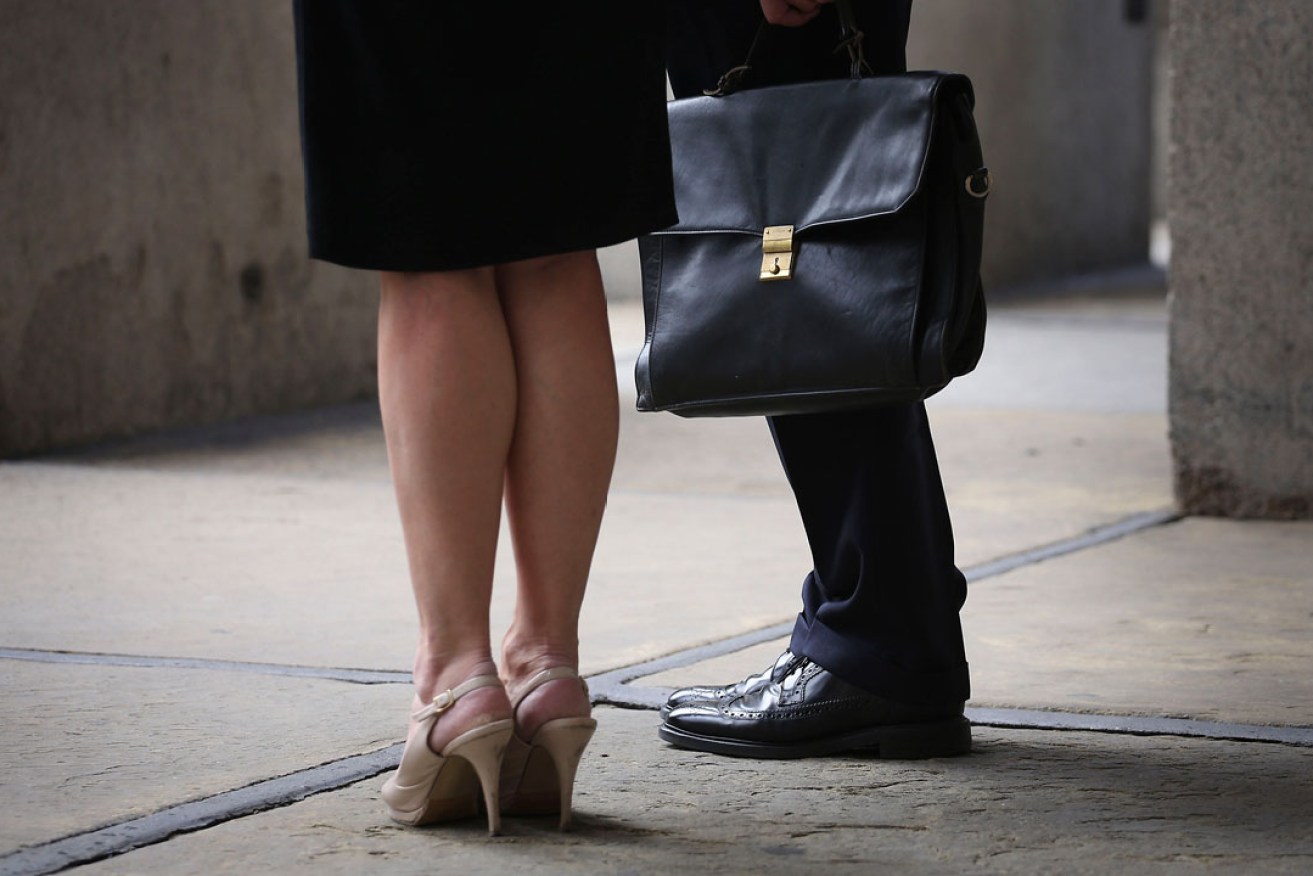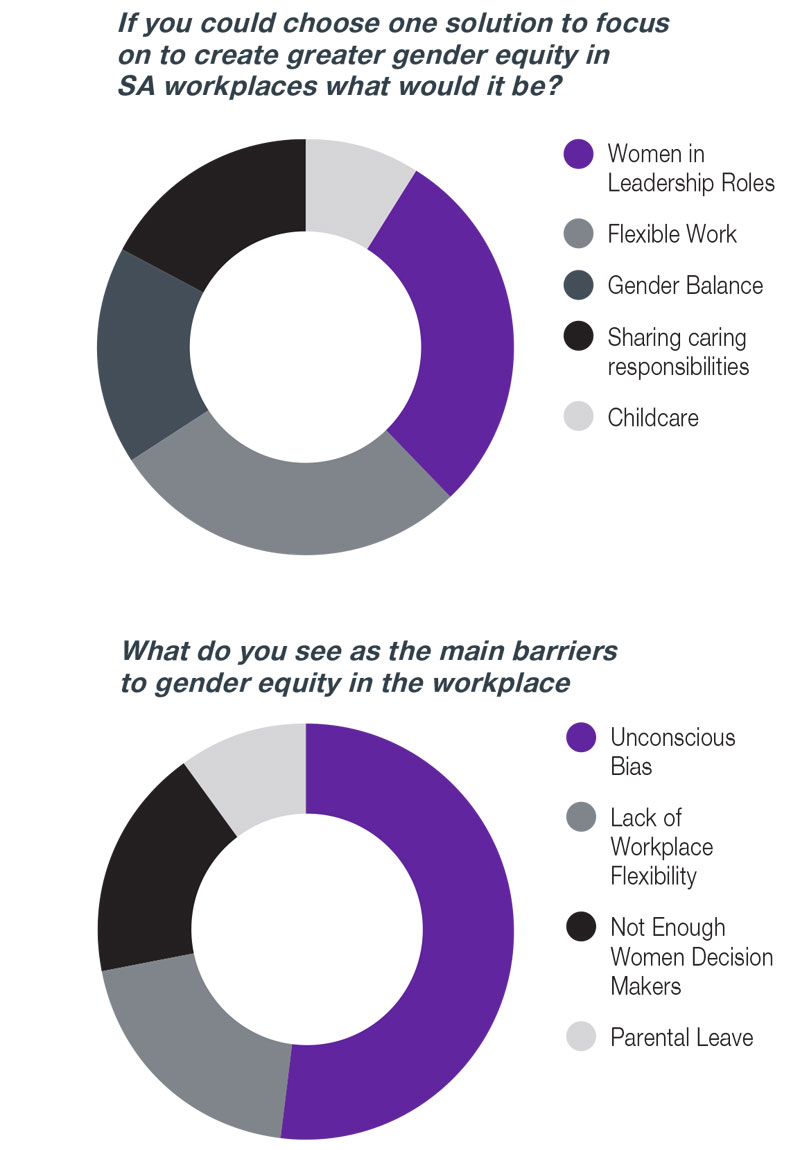SA must tackle barriers to workplace gender equity
New research shows South Australia needs to make urgent changes to advance workplace gender equity and realise the state’s untapped economic potential, SA Equal Opportunity Commissioner Niki Vincent writes on national Equal Pay Day.


Women in South Australia still earn 11 per cent less than men. Photo: AAP
Today marks Equal Pay Day, highlighting the differences between the average earnings of women and men in Australia. And frankly, it’s pretty stark news.
Australia Bureau of Statistics figures show the overall pay gap in Australia is 16.2 per cent, while in South Australia it is 11 per cent – the second-lowest after the ACT. That’s mainly because SA’s economy is less skewed by male-dominated industries.
While pay gaps are a complex issue, our government, employers and the community should realise we’re wasting billions of dollars in unrealised potential through gender inequality.
Australia is failing to capture the substantial economic contribution women offer.
Gender equity makes good economic sense
There’s no doubt gender equity is good for business. Earlier this year, La Trobe University Business School examined more than 500 ASX-listed companies and found those with more women on boards and a more diversified workforce actually made more money.
The McKinsey Global Institute found $US12 trillion could be added to global GDP by 2025 by advancing women’s equality in the workplace.
But diversifying the workplace can happen only if employers are willing to become more innovative in their approach to hiring, retaining, promoting and even reimagining the structure of work itself.
Does a manager have to be 9-5, Monday-Friday, sitting at a desk to be productive? Shouldn’t men and women be incentivised to share the load of childcare? Can’t part-time workers have the same access to career paths as their colleagues?
Why caring is a career killer
We know many women take time out of the workforce at the peak of their careers to care for children. This is an economic reality for families because childcare is expensive.
And what a penalty they pay.
When they return, often in a part-time capacity (and women constitute 71.6 per cent of all part-time employees), they find themselves stuck on the “mummy track”, with lower salaries, sidelined from leadership opportunities and contributing less to their retirement funds.
Yet there’s no evidence that lack of childcare or the need for shorter working hours are holding back men’s careers (or super). In fact, when was the last time you heard a high-profile businessman asked how he managed to juggle work and family?
It’s not that this question shouldn’t be asked of women; it’s just that it isn’t ever asked of men.
It’s part of an unconscious gender bias that’s at the heart of most workplaces, and until that changes it will be difficult to capitalise on what could be our most profitable untapped resource.
What South Australian employees want most
As the Equal Opportunity Commissioner, I also chair the SA Chiefs for Gender Equity – a group that brings together some of South Australian’s most prominent organisations to drive change on gender equity and share learnings with other business groups in the state.
Our research report, Learning from Listening, shows the biggest concerns for SA women (and men) is access to flexible working arrangements and opportunities to step up to leadership roles.
In particular, there seems to be fewer “agile working” options for those in more senior roles. This is concerning as it excludes those with caring responsibilities from ever progressing in their careers.
The SA study also found there’s a particular stigma associated with men taking time out of the office to share childcare duties and therefore male uptake of part-time work is limited. In fact, many regard it as a career killer. Such limited assumptions about masculinity narrow men’s choices – and lives.

Flexibility at work could give men and women an equal chance to contribute both at home and in the workplace, thereby enhancing their individual wellbeing and that of society.
Future-proofing the workplace
Perhaps if there were more women promoted to the C-Suite our workplace culture might change?
Meredith Hellicar, CEO of leadership development company Merryck & Co, noted recently that while the old definition of who we promote in a company used to be “someone who looks like me”, these days it should be “somebody who looks like what this company needs for the future”.
Our world is fluid and fast-moving – we need a workforce with a diverse skill set that relies on more than just technical knowledge. We need collaborative leadership abilities, more emotional intelligence to engage with customers in new ways and fresh insight to think laterally about the future.
Moving toward a 50/50 gender split at all levels in SA workplaces would provide this, but that takes real commitment to gender equity at the board level.
Senior leaders should be “walking the talk”. Wouldn’t it be great to see more CEOs working compressed weeks? Or taking time out to attend those school meetings?
Wouldn’t it be great if teachers called dads 50 per cent of the time when kids got sick at school?
Over the next 12 months, the SA Chiefs for Gender Equity intend to share local best-practice examples – including programs from gender equity leaders such as Westpac and KPMG, as well as those breaking new ground in transforming their male-dominated cultures, such as SA Power Networks.
It’s a great opportunity to learn more about what’s worked and why, and how that can be adapted and tailored for a range of other SA businesses – both big and small.
Let’s try to move the needle towards real change, starting with more flexible work environments and helping all women to achieve their full career potential.
Gender diversity is good for both individuals and the bottom line and that could give South Australia and our economy the edge we’ve been looking for.
Dr Niki Vincent is the SA Equal Opportunity Commissioner and the chair of the Chiefs for Gender Equity, which includes representatives from SA organisations including Westpac, KPMG, WSP Parsons Brinckerhoff, University of Adelaide, SA Power Networks, PIRSA, Finlaysons, BAE Systems and Westpac. More information here.




